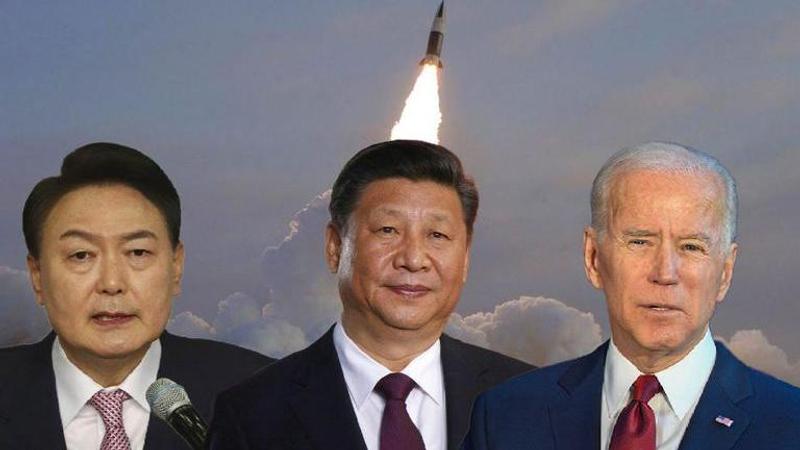Published 17:28 IST, February 24th 2023
North Korea warns US, says 'provocative acts' may be construed as a 'declaration of war'
North Korea test-fired four "Hwasal-2 strategic cruise missiles" from the city of Kim Chaek towards the Sea of Japan on Friday morning.

North Korea test-fired four "Hwasal-2 strategic cruise missiles" from the city of Kim Chaek towards the Sea of Japan on Friday morning, according to reports in North Korean media. This announcement coincided with joint military exercises hosted by the Pentagon and involving US and South Korean forces. In response to what it sees as persistent "hostile and provocative practices" by the US, North Korea has warned that these actions may be construed as a 'declaration of war', according to a statement by Kwon Jong-gun, the director-general of the North Korean Foreign Ministry's US affairs department, as reported by state-run Korean Central News Agency (KCNA).
To end the "vicious cycle" of military tensions in the Korean Peninsula and the surrounding region, the North Korean Foreign Ministry's official urged the US to abandon plans to deploy strategic assets in the South and to cease joint military drills with its allies, according to the KCNA report. Kwon Jong-gun, director-general of the North Korean Foreign Ministry's US affairs department, criticized the US and South Korea for bringing up "a sovereign state's legitimate right to self-defense" during a UN Security Council meeting, according to the statement. The official strongly protested and denounced this move, warning of "strong corresponding action" if the council discusses North Korea's right to self-defense. Kwon also deplored the Council's role as a tool for exerting pressure on North Korea on behalf of the US, suggesting that it had lost its impartiality.
"If the UNSC has a true intention to contribute to peace and security in the Korean peninsula, it will have to bitterly condemn the U.S. and south Korea for their moves of escalating military tension such as frequent deployment of strategic assets and large-scale joint military drills against the DPRK," Kwon said.
A look at the relationship dynamic
The relationship between North Korea, South Korea, and the United States has been a complex and contentious one for decades. The history of the Korean Peninsula is fraught with conflict and division, and this has had a significant impact on the relationships between these three nations. In this essay, we will examine the historical context of these relationships and the current state of affairs between North Korea, South Korea, and the United States.
The history of the Korean Peninsula is marked by centuries of foreign invasions, occupations, and divisions. In 1945, at the end of World War II, Korea was divided into two separate nations, with the Soviet Union occupying the north and the United States occupying the south. This division was intended to be temporary, with the ultimate goal of reunifying the country. However, this goal was never realized, and instead, the two Koreas evolved in dramatically different ways.
North Korea became a communist state, with a heavily centralized government and a cult of personality around its leaders. The country pursued a policy of isolationism and self-reliance, which led to a great deal of suffering and poverty among its people. South Korea, on the other hand, embraced capitalism and democracy, becoming one of the most prosperous and modernized nations in the world.
The relationship between North Korea and the United States has been characterized by a great deal of tension and hostility. During the Cold War, North Korea aligned itself with the Soviet Union and China, and was seen as a major threat to US interests in the region. The United States responded by maintaining a large military presence in South Korea and imposing economic sanctions on North Korea.
The relationship between North Korea and South Korea has also been fraught with tension. The two countries technically remain in a state of war, as the Korean War ended in a ceasefire rather than a formal peace treaty. The heavily fortified border between North and South Korea, known as the DMZ, is one of the most heavily militarized borders in the world.
Updated 17:28 IST, February 24th 2023




